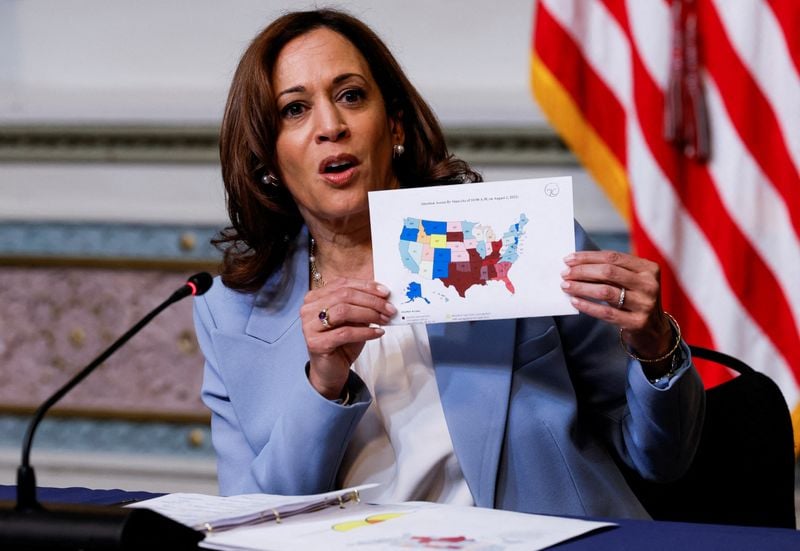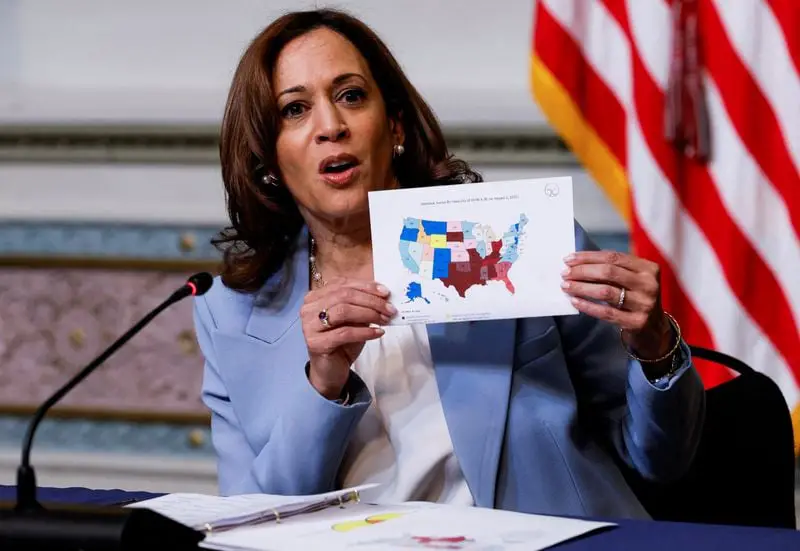
Washington, D.C. — Vice President Kamala Harris addressed the ongoing challenges at the southern U.S. border, emphasizing the Biden-Harris administration’s commitment to addressing the root causes of migration and maintaining consistent engagement with neighboring countries.
That commitment was announced in 2021 and the crisis continues today.
“I am meeting with a lot of folks. And the work that we have begun is the work that is going to be ongoing. There is no question, and I said this from the beginning, that our approach to this issue has to be with a commitment to a long-term investment and it has to be a commitment to consistency,” Harris stated.
She underscored the necessity of sustained U.S. involvement, noting that periods of reduced engagement have led to deteriorating conditions and partnerships.
“There were times when were more engaged and we saw good results, less engaged, and we can see where the work and the partnerships then deteriorate. So I am committed to ensuring that we engage in an active way on the root causes, on addressing the cause and effect, and also being partners in the western hemisphere, understanding that we have a responsibility and if we ignore that responsibility it will visit itself upon us in a very domestic way,” she added as she deflected from her responsibilities to find and address the root causes of the crisis.
Harris highlighted the administration’s strategy to tackle the root causes of migration, aiming to stabilize conditions in Central America and other regions. This includes generating over $3.2 billion in private sector investments to create jobs and opportunities in countries like El Salvador, Honduras, and Guatemala, as well as implementing joint law enforcement operations with Mexico and Guatemala to disrupt human smuggling networks.
To date, immigration remains at record levels in 2024.
The administration has introduced several measures to manage the border crisis, such as expanding legal pathways for migration and increasing border enforcement. These efforts include the expansion of the parole process for nationals of Venezuela, Nicaragua, Haiti, and Cuba, allowing up to 30,000 individuals per month to enter the U.S. legally with work authorization.
Those legal pathways do not solve the problems facing American cities and communities being overwhelmed with the burden of caring for and police the influx of new migrants into their communities.
Additionally, the Department of Homeland Security has announced a series of actions to accelerate the processing of work authorizations, redesignate Temporary Protected Status for Venezuela, and expedite the removal of individuals without a lawful basis to remain in the U.S.
Former U.S. President Donald Trump has claimed the Venezuela action is allowing that country to rid itself of criminals and others, to send them to the United States.
The Vice President reiterated the administration’s commitment to a humane and orderly immigration system, calling on Congress to pass comprehensive immigration reform and fully fund border security initiatives that will legalize the existing flow of migrants into the United States.

